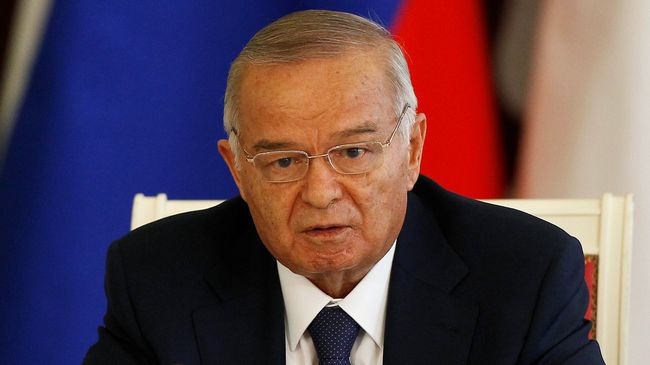After Karimov, what is next?
Not only Central Asian capitals, but also Moscow, Beijing, and Washington are closely watching the events in Tashkent
No matter what Uzbekistan President Islam Karimov’s real state of health is, it is already clear that his era in the life of this Central Asian country has come to a close.
Karimov began to rule Uzbekistan at the end of the Soviet period and has proved to be quite a tough leader in the past 27 years. Moreover, he even went on record as a reformer in the early 1990s, and his country managed to achieve some economic progress. However, the reforms ground to a halt quite soon, and he began to form a rigid vertical chain of power oriented to one man only.
From the very outset, Karimov took an irreconcilable stand against Islamist radicals. Their 2005 revolt in Andizhan was severely put down. Further on, Islamists were ousted from the country or went deep underground. Only in the Fergana valley did they still wield some influence, but it is not at all visible now.
Karimov managed to establish the strongest – in military terms – state in Central Asia, which is a weighty argument in a rather complicated relationship with the neighbors. Air links with Tajikistan have remained severed since 1992, and railway communication was often interrupted. Tashkent used to periodically cut off gas supplies to Dushanbe. There was nearly an armed conflict with Kyrgyzstan the other day over a borderline hill.
Also noteworthy is certain messianism that comes from the Uzbek capital. Ancient history is being glorified – from Sogdiana to Tamerlane’s campaigns. This is a point of conflict between Turkey’s Pan-Turkism and Uzbekistan’s attempts to dominate in a big-brotherly fashion over at least its Turkic neighbors.
All this is now undergoing a serious test. Due to a rather closed nature of the Uzbek government, it is possible to see the motive forces of the coming changes in broad outlines only.
Firstly, irrespective of the real state of Karimov’s health, it is clear that he will never regain the main levers of power – both for objective (everybody may be ill for quite a long time) and subjective reasons. The Uzbek elite have long been preparing for a “post-Karimov” period, and this time has come now. Even in pure human terms – he has been in power for too long a time, and everybody is just tired.
Secondly, due to a closed nature of the government, power will be handed over by way of backstage deals. Karimov knew how to reach a compromise with the contradictory interests of various clans behind which the influence of foreign players is often discernible. It is too early to say how they will find a common language.
Thirdly, Karimov pursued a multi-vector foreign policy – quite firmly and with unexpected turns. With him in power, Tashkent used to give a lot of trouble to both Moscow and Washington. It seemed at times that Uzbekistan had turned to China. At any rate, the flow of Chinese investments has considerably grown lately.
In June, during a Shanghai Cooperation Organization summit, Karimov and China’s President Xi Jinping opened a tunnel, Kamchik, on the Angren-Pap electrified railway line. The tunnel was built jointly by the railway companies Ozbekiston Temir Yollari and China Railway Tunnel Group. This branch line linked Tashkent oblast with the Fergana valley in Uzbekistan. The main point is that the train plying between the Uzbek Margilan and Tashkent will no longer have to pass through Tajikistan’s Khujand.
Not only the capitals of Central Asian states, but also Moscow, Beijing, and Washington, are closely watching the events in Tashkent. Experts are unanimous that those who have the greatest chances to succeed Karimov are the current Prime Minister Shavkat Mirziyoyev (in office since 2003) and Vice Premier Rustam Azimov who is in charge of the economy. The former is considered to be pro-Russian and the latter pro-Western. The formal factor is also to be taken into account. In an emergency, the presidential office should be held until the next elections by Nigmatilla Yuldashev, Speaker of the Uzbek parliament’s upper chamber, the Senate. Then a presidential election is to be held within three months. The clans should make a deal by this time, otherwise it will be bad for everybody.
The political orientation of the probable candidates is rather relative, for it may change essentially after they have assumed office. In any case, Moscow has already said it is ready to give Uzbekistan a leg up. It will be clear very soon if Tashkent needs this help.
“THERE HAVE BEEN NO BIG PROBLEMS IN UKRAINE-UZBEKISTAN RELATIONS DURING THE PRESIDENCY OF KARIMOV”
Serhii VINNIK, First Secretary, Charge d’Affaires, Ukrainian Embassy in Uzbekistan:
“As of 3 p.m. local time, there was no official information about the death of Uzbekistan’s president. On the night of August 30, the president’s staff denied regional media information on the death of Karimov, saying that reports on the head of state’s death are not true. The president was hospitalized, and doctors assess his condition as stable. We have no other information now. Nor was it officially confirmed that Vice Prime Minister Rustam Azimov had been placed under house arrest.
“As for bilateral relations, there have been no big problems between Ukraine and Uzbekistan during the presidency of Karimov.”
Newspaper output №:
№48, (2016)Section
Day After Day





